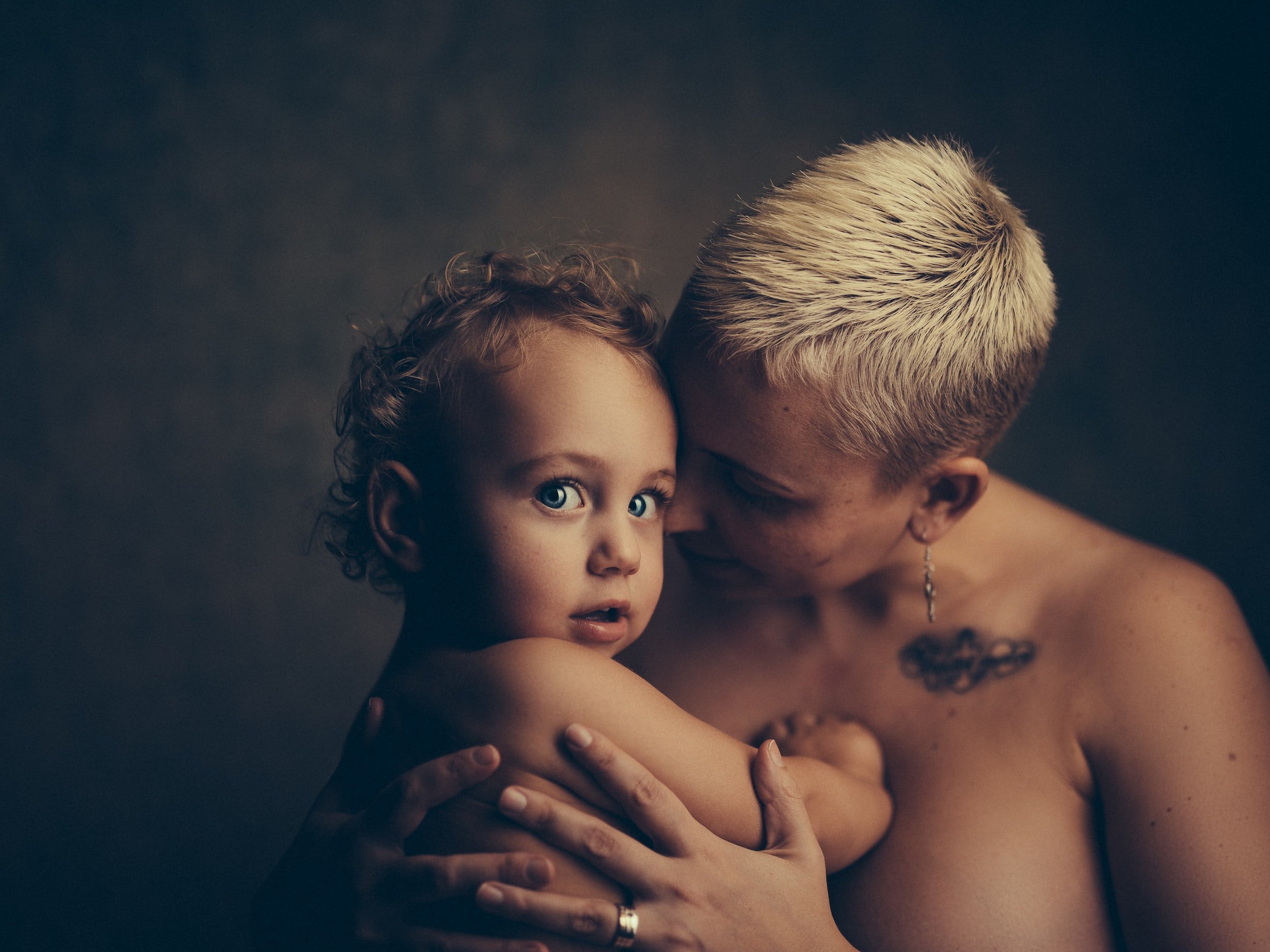Skin Deep
Skin Deep
Our skin is a responsive, tactile boundary between ourselves and others. It functions to protect and cushion us and is elastic, breathable, and washable—a truly amazing organ. It is through our skin that we sense touch, which is possibly the most important sense in a newborn. A baby’s first sense is developed within the womb as waves of amniotic fluid caress their skin along with the hugging of their mother's womb. Touch post-birth will help stimulate the tactile nerve endings in a baby’s skin, and this stimulation leads to the release of hormones that help facilitate the significant transitions that both babies and parents experience during and after birth.
To understand things better from a baby's point of view, we only have to imagine their journey from the womb into the world; it is indeed a huge transition to leave the safety of the womb and arrive earth-side. Parents also experience their own transition from independent self into parenthood with all its responsibilities.
Hormones play a vital role in facilitating the connection between every new mother and baby, and like all new relationships based on love, it is like an evolving dance. This is what helps release the cocktail of hormones that make both mother & baby feel more connected and in love over time. However, love is not always instantaneous, especially when birth was challenging. That's why it's important to remember the healing power of touch, starting with "skin to skin" in the first hours and weeks. Skin-to-skin contact has been proven to help promote breastfeeding, stabilize the baby's temperature, and improve their breathing, making it an essential practice in the early hours and days and throughout the fourth trimester.
A mother’s touch, eye contact, voice, and body language all come into play as she bonds with her baby. As she feels her baby relax in response to her touch and observes her baby smiling, she, in turn, relaxes and smiles too. Oxytocin begins to flow between them both. The mother’s voice goes up an octave, and her whole body language softens as she sings to soothe her baby. Her baby responds in turn by cooing and copying her facial expressions. All of the above strengthen their growing bond as they literally fall in love, with strong attachment blossoming in this one-on-one communication. The sense of touch continues to play an important role in a child’s development way beyond infancy as it promotes emotional regulation and social development, remaining an important part of the parent-child bond throughout childhood.
When we attend to babies with deep and profound respect, we answer a deep craving in them. The growing reciprocity and love between parents and babies teach our children, from the start, tolerance, empathy, compassion, and how to nurture themselves and others as they grow.
“Being touched and caressed, being massaged, is food for the infant. Food as necessary as minerals, vitamins and proteins. ”
Here are some simple suggestions for new parents to feel more connected to their babies:
Create a calm and nurturing environment with the help of relaxing music, lavender room spray, and the comforting smell of a nourishing soup on the stove. Get comfortable on your bed or sofa, observe your baby, and notice your breath. Breathe out and let go of tension and breathe in to soften your belly.
Use a simple mantra to say silently to yourself or to your baby such as ‘Here I am’, ‘here you are’, ‘here we are.’
Use your gentle touch or a comforting resting hand on your baby’s belly to help relax your baby's parasympathetic nervous system. Stroke your baby over clothes or their little legs when changing a nappy. Hold their little foot in the palm of your hands or massage their temples and stroke with a cupped hand over their head. All of these actions will help you both relax and oxytocin will flow!
Enjoy baby massage when your baby is confident in your loving presence and touch. Gradually build up a simple routine starting with the legs during a nappy change. Use any simple natural oil such as organic coconut oil or try Neal's Yard baby oil. Come to a class or organize a 1:1 session with myself to learn more.
Wear your baby in a simple wrap sling around the home in the early weeks. This way, you can use your hands while your baby still receives all they need as they listen to your heartbeat and smell you close while being rocked and held in your embrace.

